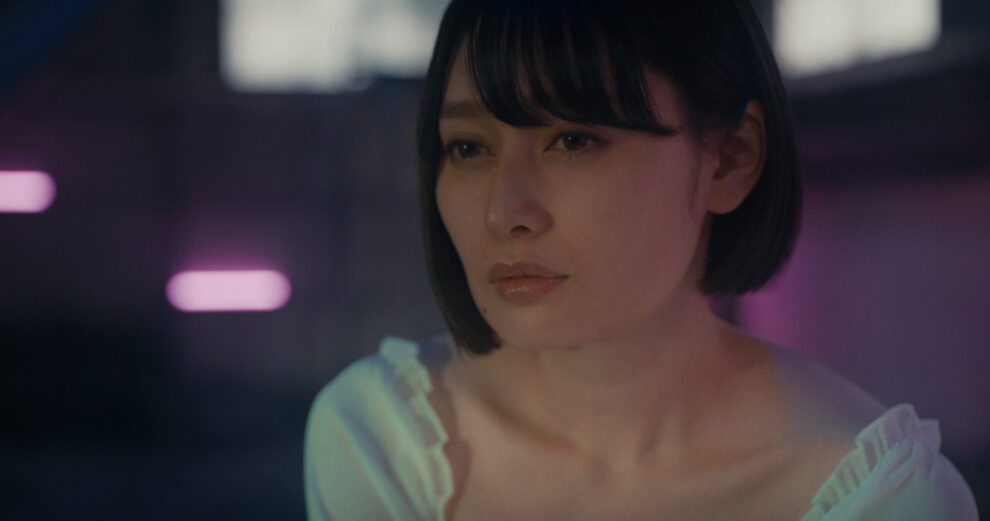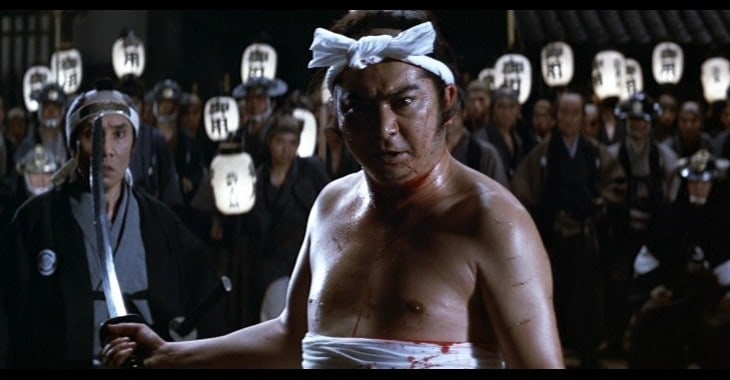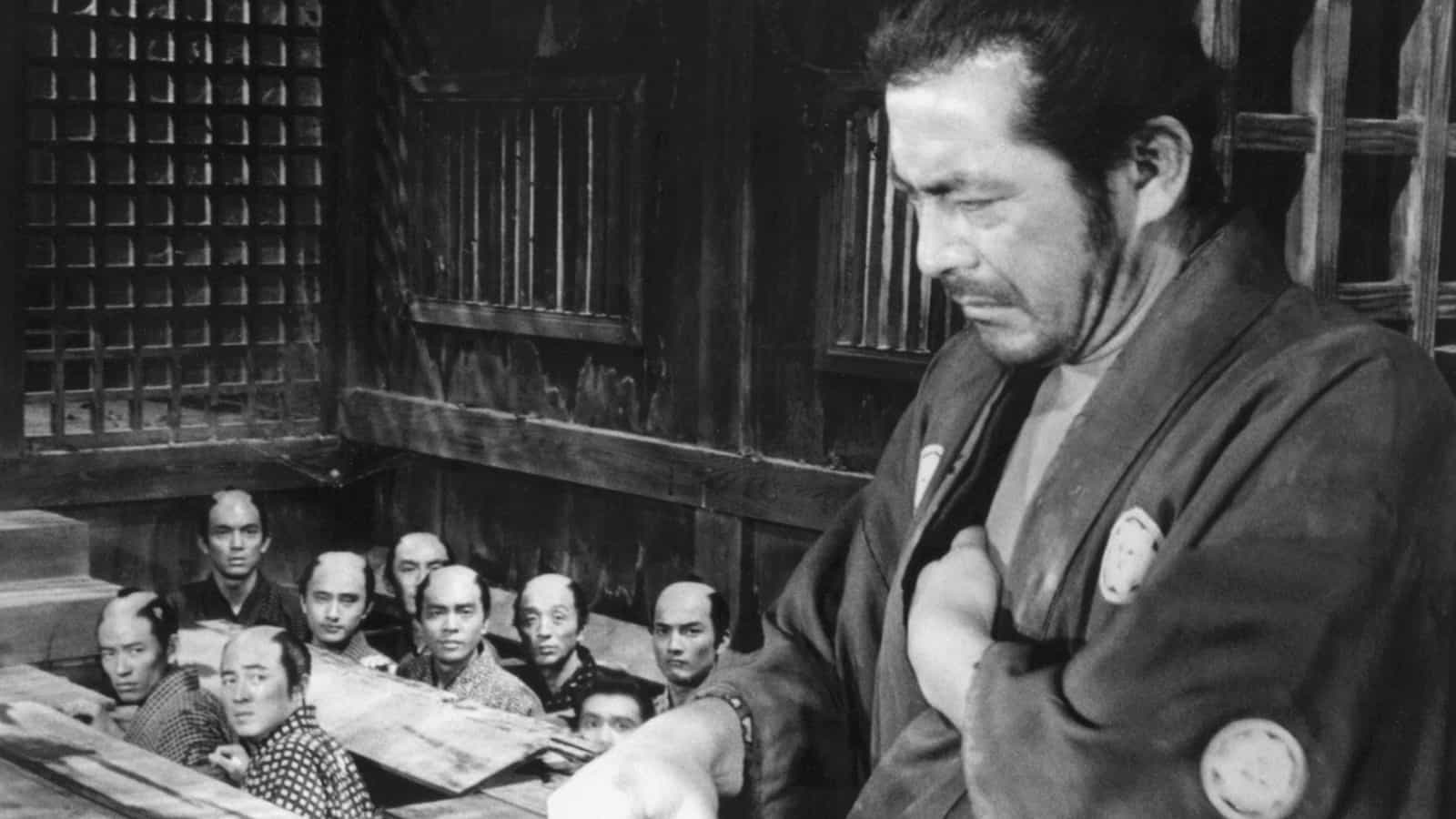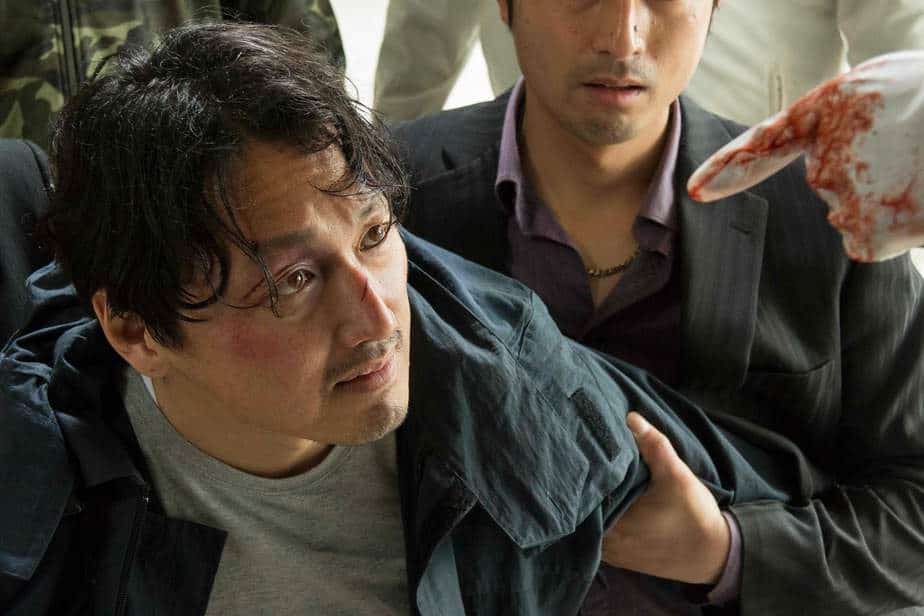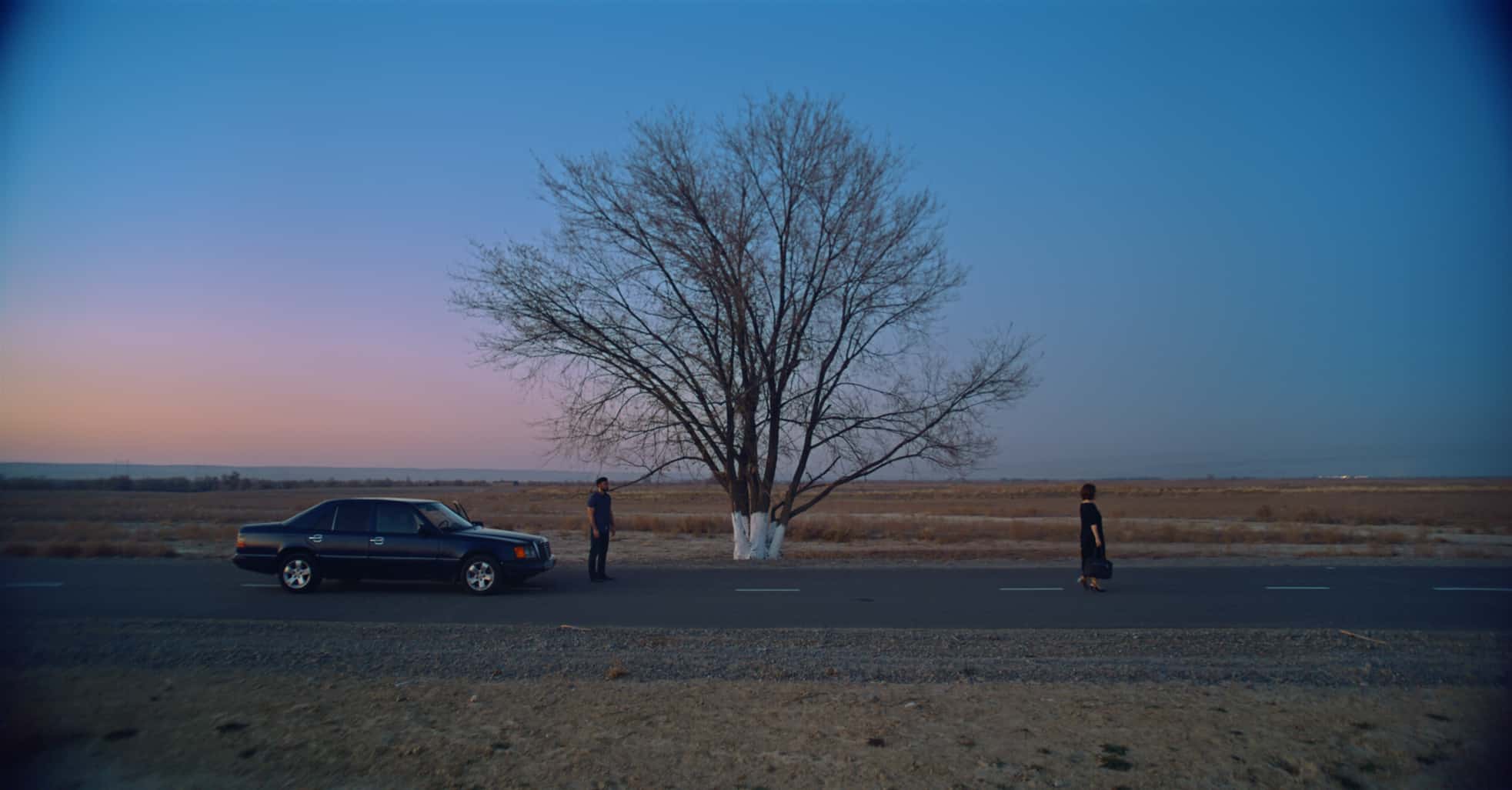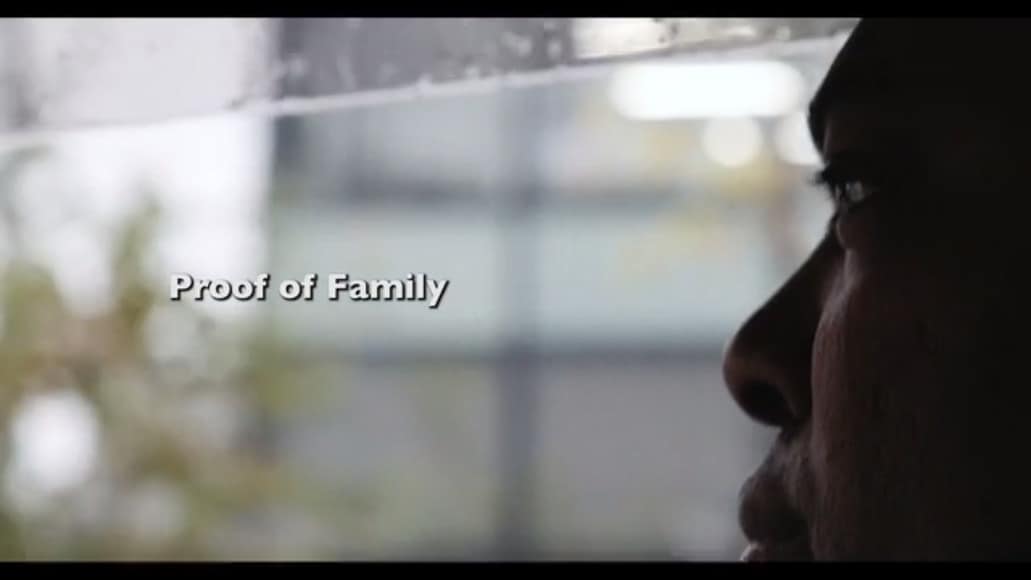Director Hiroki Wakamatsu – who studied pedagogy and psychology at Tokyo Metropolitan University before veering towards filmmaking – presents a 71-minute film where he sets to explore human and not-human psychological interactions in the microcosm of an emotionally distressed young man's mind.
Hakoniwa – Eden in the Box is screening at Japan FilmFest Hamburg
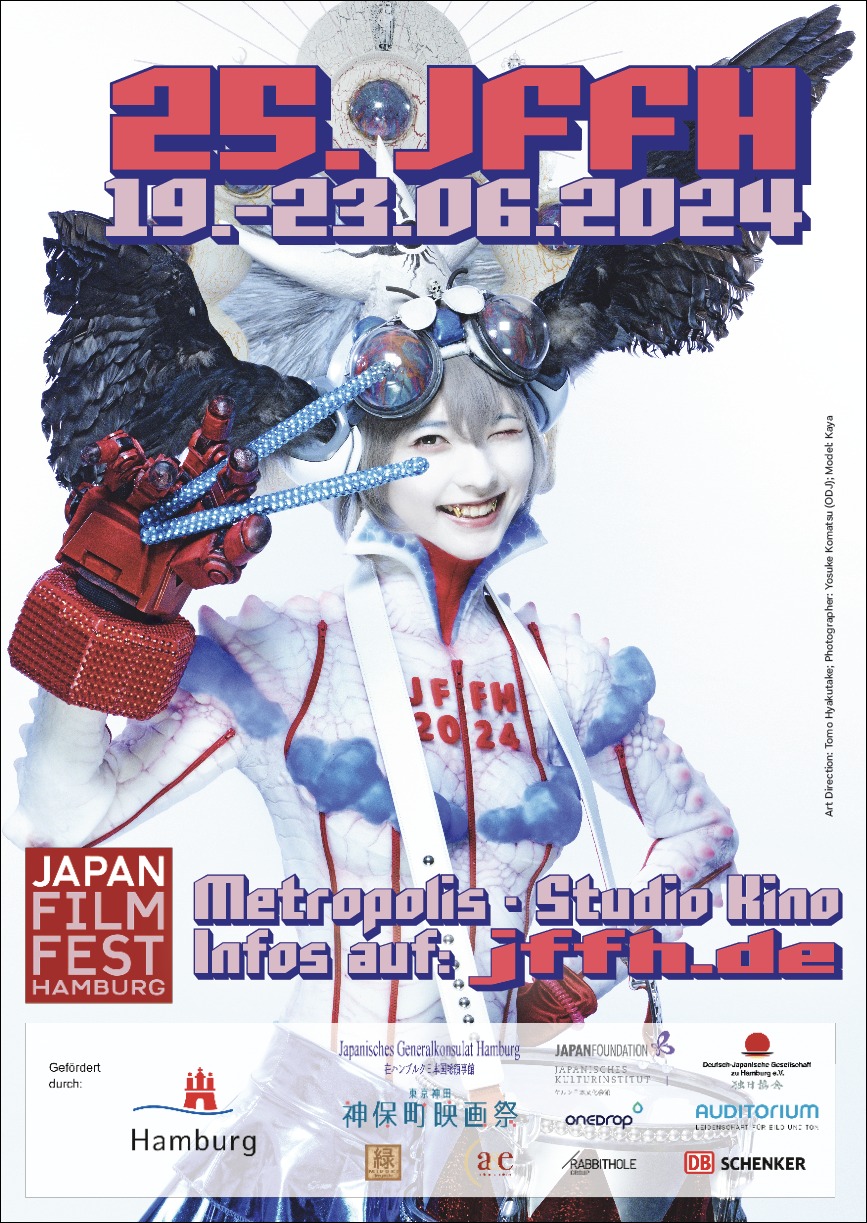
Makoto (Ryutaro Akimoto) is voluntarily acting as a Guinea pig in an experiment carried forward by an Artificial Intelligence developer team. They are working on the creation of a transhumanoid device called AGEHA (Nori Sato), consisting of a human female body, fitted with an artificial intelligence system designed to help people manage and improve their emotional well-being. During Makoto and AGEHA sessions, the young man is wired to the cyborg and an emotional connection and synchronicity are established.
However, things start to get out of control when Makoto plunges deeper into his personal past, re-enacting traumatic episodes of his unhappy childhood. Through these regressive flashbacks, we learn that Makoto grew up in a problematic family unit, with an unloving, absent, and often violent father – probably unable to deal with his own failures – and a loving mother, struggling with guilt and – most likely – depression. The man seems to observe his family's scenes from the outside when connected to AGEHA, but a mysterious hooded little boy starts to appear randomly in the experimental sessions, and when the AI developers notice this phenomenon too, they prompt Makoto to stop his back and forward trips to the recesses of his unconscious as it could turn rather dangerous and he could get stuck in his own past.
AI research is rapidly evolving, so rapidly in fact, that the unknown aspects of AI's capabilities and future developments can generate fear and apprehension. Furthermore, fear of emotional connection with AI is one of the main concerns as various psychological, ethical, and societal issues stem from it. Director Spike Jonze delved into the concept of emotional connections with AI in his rather original for its time “Her” in 2013. Wakamatsu wants to explore further the relation with an operative system that can analyze human emotions, provide empathy, therapeutic techniques, and a healing service.
“Hakoniwa”, the rather poetic title of Wakamatsu's cinematic debut, is in fact a Japanese term that translates to “miniature garden” or “box garden.” These small, intricate landscapes carry deep symbolic meanings, reflecting Japanese culture and philosophy: designed to mimic larger natural landscapes and symbolizing the interconnectedness of all things, a hakoniwa allows the creator to exercise control over a tiny world, symbolizing mastery and the ability to shape one's environment. Wakamatsu's “Hakoniwa” is the microcosm where Makoto is supposed to connect with AGEHA, take care of his mental landscape and enrich each other knowledge, and it also will acquire further significance at the end.
If you like Hakoniwa, check also this video
It is an interesting vision, and rather a possible one, probably in the near future. However, the narration in “Hakoniwa” is somehow disorientating, and with many elements gradually entering the scene, like Makoto's family history, the company CEO's disillusion and impromptu conspiracy theory, a rather nonsensical and hysterical female head of researches, a monitoring psychologist, a couple of sentient androids and AGEHA looking more a more like a damsel in distress, it's easy to lose track of where the plot is heading.
The film manages to be atmospheric at times, especially in its external shots and the focus on abstract details, but it suffers a bit in the pretty bare, low budget interiors. AGEHA literally sits in a hakoniwa-style glass box, as in the title, but the strange choice to make her type on a rather old-fashion PC keyboard, with embellishments of flowers and butterflies, sporting an elegant gown, shimmering skin and make up as if ready for a grand soiree, feels a touch naïve. There is a twist at the end that – although not particularly original – can explain both the confusion and the scarce plausibility of the previous storytelling, but it is a too-easy trick, and it still leaves you with more questions than answers.
To conclude, “Hakoniwa” is a good starting point, but its ambition to cover too many complex themes is also its downfall.


